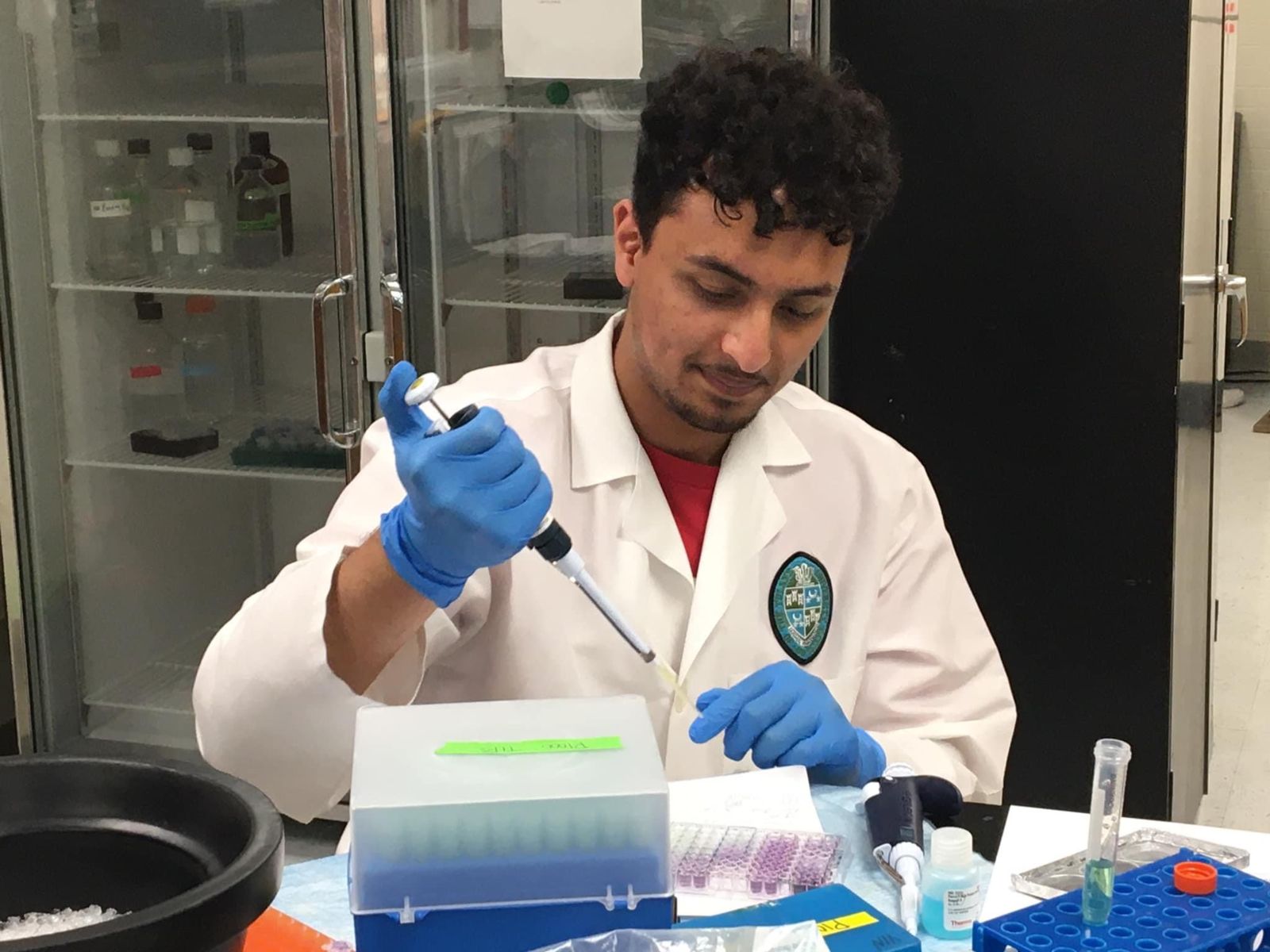After COVID stripped away in-person research opportunities last year, Spandan Joshi ’22 was determined this summer to work inside a laboratory where he could put the skills he’s learned in the classroom to use.
 Joshi, a biology major and psychology minor, connected with professors at the Tulane University School of Medicine in New Orleans and spent the summer as an intern for the Liver Pathology Lab, thanks to support from the Dill Fund.
Joshi, a biology major and psychology minor, connected with professors at the Tulane University School of Medicine in New Orleans and spent the summer as an intern for the Liver Pathology Lab, thanks to support from the Dill Fund.
The Dill Fund was established by a generous gift from G. Michael Dill, '71. The fund supports the educational mission of the College by enabling students to explore off-campus opportunities outside of the normal academic year.
We caught up with the rising senior to learn more about what he’s up to and how his Wabash education has prepared him for this exciting internship.
Q: What are your responsibilities inside the lab?
The internship is very research-oriented. We’re researching what kinds of causative agents are causing liver disease in the country, and ultimately, how we can avoid those dangerous substances and protect the liver.
There’s an accumulation of proteins inside liver cells, and I am trying to find out what these types of proteins are — that’s still a novel field that hasn’t been studied a lot.
Q: How do you conduct that research?
There’s a lot that goes into it. I work alongside the professors and other interns, and we run experiments using things like protein gels.
There’s also animal handling and testing with mice, which is really cool and something I’ve never done before. I learned how to hold them properly, tranquilize, and dissect them so we can extract the blood and test the proteins.
Q: What have you enjoyed most about your internship?
I wasn’t particularly interested in the liver, but I knew I wanted to do some kind of hands-on research in general.
Working in an actual lab is amazing. I am in there making gels on my own. I have to be precise with it because if I get a measurement wrong, it will mess up the whole experiment. That’s a lot of responsibility, but I enjoy that.
The experiment the professor assigned to me hasn’t been studied as much as all the others with liver disease. There’s an opportunity for me to find something new that could lead to future experiments. That could be revolutionary.
Q: How has Wabash and the skills you’ve learned so far prepared you for this work?
Communication. I don’t work alone. To some degree, the professor’s other interns’, and my experiments are intertwined with each other. I have to be able to communicate in an articulate manner so everyone understands and we’re on the same page.
.jpeg) Q: What are you hoping to get out of this experience? What are your goals?
Q: What are you hoping to get out of this experience? What are your goals?
I’m one of those guys that likes to do everything by myself. I don’t like to ask for help or depend on others, but that’s not how it works in a lab. There will be interruptions and sometimes things won’t work the first time, and I’ve had to learn that’s OK. I’ve learned how to work as part of a team, and that’s something I hope to keep improving.
One goal would to be continue networking and building connections. It’s been fun talking to the other interns and asking questions like, ‘What’s your plan? What are you going to do after gradation?’ I’ve learned a lot and was introduced to new opportunities and ways of thinking from what they’ve had to say.
Q: What are your plans after graduation?
I actually came into Wabash thinking I would go to medical school, but that’s still to be determined. I’m juggling options.